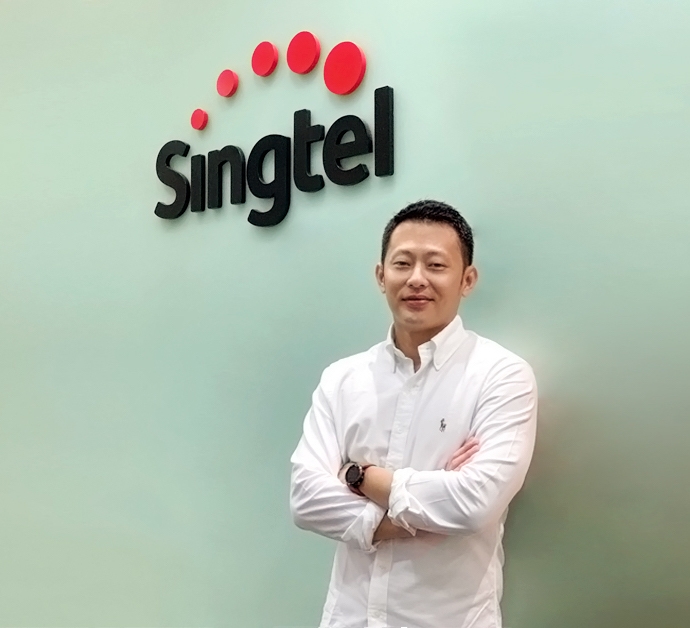Busting Automation Myths with Andy Goh from Group IT
Published 25 Apr 2019 by Amanda Burgess

At Singtel, our Group vision is to be Asia Pacific’s best communications technology company. We believe that the world is a better place when technology is used to help people and businesses communicate effortlessly.
In Group IT, we support this vision by delivering technologies and capabilities that create game-changing experiences for our customers and our people. From artificial intelligence and machine learning to Robotic Process Automation (RPA) and chatbots, we’ve been exploring automation in depth to find new ways to optimise our business operations and more importantly to improve customer experience.
Automation has transformed the way organisations operate. While automation may not be new, it plays a key role in the digital future as we all continue to adapt, digitise and grow. In Group IT, we see automation as an opportunity to create value, and we’re always trying to think of new ways to realise its potential.
While there are plenty of exciting opportunities and positives to discuss with automation, there’s been some fear surrounding these kinds of technologies too: a fear of the unknown, a fear of change and an abundance of myths perpetuated about it.
So, I decided to catch up with an expert to tackle this head-on. Andy Goh is an Associate Director within the Corporate Systems domain in Group IT at Singtel. Andy also heads up the RPA Competency Centre, which is an online space where people across Singtel can visit for more information about RPA, access training and discover how it could help them add value for customers and their teams.
Will automation take away all human jobs?
As Andy explained to me, a lot of this negative stigma and fear around automation comes from the fact that we often fail to realise that change is constant, and we need to embrace it.
“With RPA, the only part of your work that can be automated and replaced by bots is the repetitive tasks that do not require much human intervention in the first place,” he said. “The impact of RPA and automation more broadly is similar to what happened during the Industrial Revolution - people will learn new skills when their previous ones are made obsolete.”
Andy’s insights don’t just apply to RPA – they apply to artificial intelligence, chatbots and physical service robots too. Rather than fearing new advancements in automation, we need to redirect our focus towards how we can use it to our advantage, work with them side-by-side and develop new skills for the future. Automation may not be going away anytime soon, but neither are we.
Does automation have the potential to replace us entirely?
Bots don’t have feelings or emotions and can’t feel the depth of the human experience like we can. They have no common sense – we need to build sense into them. Although a bot with emotions sure does make a good plot for a movie or TV show, in reality, they can’t think like we do. Bots follow what they’re programmed to do – nothing more, nothing less. In essence, automated technology does not inherently create sentient beings - they can’t think like humans unless we program it into them (and Andy tells me this can’t be implemented in a sustainable way until Cognitive Automation matures.)
This means that the answer is no – so long as they aren’t programmed to do so, and we’re not quite there yet. The main benefit of automation for a large majority of organisations is the ability to move people away from time-consuming, manual and repetitive tasks and towards other value-add activities. It’s not necessarily about replacing a person with a robot just for the sake of it, but rather about shifting the way we work away from roles centred around these repetitive tasks.
Work with it, not against it
As we’ve seen with every big technological development over the last 100 years, new things lead to new roles. They lead to new career paths and opportunities. Take the internet and computer, for example. Now think about how many new industries, businesses, careers and jobs have been fuelled by them – the list is simply endless.
In Group IT, our people have an opportunity to work with various new technologies across the automation spectrum such as RPA, artificial intelligence and machine learning. As Andy shared, “the best part about working in Group IT is that I get to be constantly challenged and working with the latest technology.
“It’s a great feeling when you roll out the first bot for colleagues who are new to RPA and they see how much this can really help them and add value to what they do. I believe the world is a better place when technology is applied to help people and businesses, and Singtel provides the opportunity to make a difference.”
Of course, no one can predict the future. But if we focus on how we can embrace automation rather than fear it, we’ll find ourselves in a better position to adapt to the changes that are inevitable as more industries digitise and technology advances.


